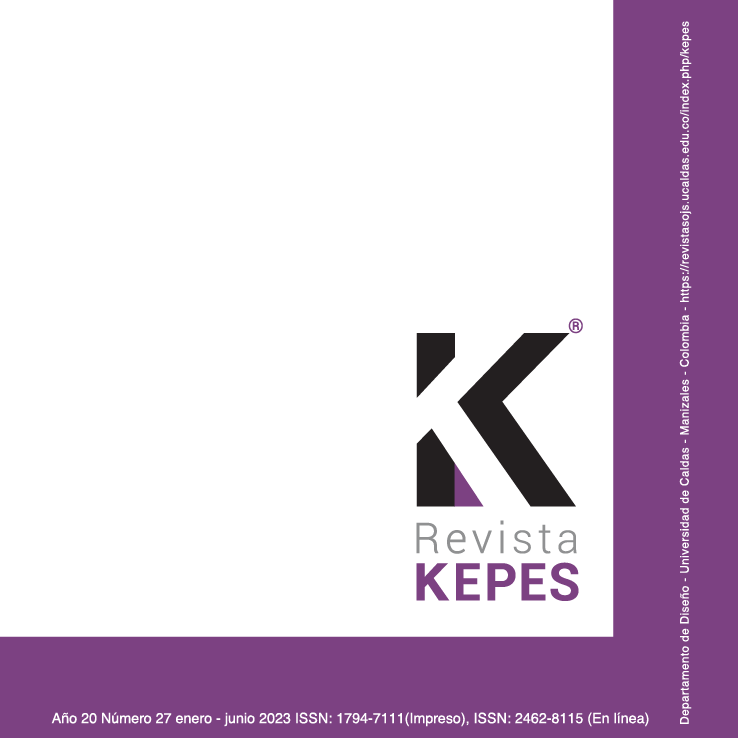Autores
Resumo
This paper argues that if we aim to Design for pluriversality, we cannot do so from a universalist notion of what it means to be a Designer. This paper briefly describes the efforts of decolonizing Design, then looks into two Design approaches in socially engaged Design methods that frame how Designers connect to place and people: Situated Design and Design Empathy. These discourses are then further nuanced by adding a decolonial lens, nuancing how Designers are situated and engage through the colonial matrix of power. This then serves as a map of aspects to be taken into consideration for nuancing a Designer’s relation place, history, profession and people in the colonial matrix of power. This paper then suggest the notions of awarenessing, an action-oriented reflective awareness on one’s position, flexibility in Design processes and the incorporation of personal aspects into Designing as possible ways to open up for pluriversal Design stances. The paper concludes by outlining potential implications of opening up for such stances in doing, writing and teaching Design.
Referências
Alves da Cunha, P. F. (2015). Capoeiras e valentões na história de São Paulo (1830-1930). Alameda Casa Editorial.
Buckley, C. (1986). Made in patriarchy: Toward a feminist analysis of women and design. Design Issues,3(2), 3. https://doi.org/10.2307/1511480
D’Amico-Samuels, D. (1997) Undoing Fieldwork: Personal, Political, Theoretical and Methodological Implications. In F.V. Harrison (ed). (1997). Decolonizing Anthropology: Moving Further toward an Anthropology of Liberation. 2nd ed. American Anthropological Association.
Escobar, A. (2015). Transiciones: A Space for Research and Design for Transitions to the Pluriverse. Design Philosophy Papers,13(1),13-23. https://doi.org/10.1080/14487136.2015.1085690
Escobar, A. (2018). Designs for the Pluriverse: Radical Interdependence, Autonomy, and the Making of Worlds. Duke University Press.
Fanon, F. (1961). The Wretched of the Earth. Penguin Books.
Freire, P. (1996). Pedagogia da autonomia: Saberes necessários a prática educativa. Paz e Terra.
Freire, P. (1970). Pedagogy of the oppressed (New rev. ed). Penguin Books.
Grosfoguel, R. (2007). The Epistemic Decolonial Turn: Beyond political-economy paradigms. Cultural Studies, 21(2-3), 211-223. https://doi.org/10.1080/09502380601162514
Grosfoguel, R. (2002). Colonial Difference, Geopolitics of Knowledge, and Global Coloniality in the Modern/Colonial Capitalist World-System. Review (Fernand Braudel Center), 203-24.
Haraway, D. (2016). Staying with the Trouble: Making Kin in the Chthulucene. Duke University Press.
Haraway, D. (1988). Situated Knowledges: The Science Question in Feminism and the Privilege of Partial Perspective. Feminist Studies, 14(3), 575-599. https://doi.org/10.2307/3178066
Kaufmann-Buhler, J., Pass, V. R. and Wilson, C. S. (eds). (2019). Design History Beyond the Canon. Bloomsbury Publishing.
Koskinen, I., Battarbee, K., & Mattelmeaki, T. (2003). Empathic design. IT press.
Mainsah, H., & Morrison, A. (2014). Participatory design through a cultural lens: Insights from postcolonial theory. Proceedings of the 13th Participatory Design Conference: Short Papers, Industry Cases, Workshop Descriptions, Doctoral Consortium Papers, and Keynote Abstracts, 0(2), 83-86. https://doi.org/10.1145/2662155.2662195
Mareis, C., & Paim, N. (eds). (2020). Design Struggles. Valiz.
Mignolo, W. (2007). Introduction: Coloniality of Power and de-Colonial Thinking. Cultural Studies, 21(2-3),155-167. https://doi.org/10.1080/09502380601162498
Mignolo, W. (2012). Local Histories/Global Designs: Coloniality, Subaltern Knowledges, and Border Thinking. Princeton University Press.
Mignolo, W. (2018). Pensamiento Decolonial. In G. D´Alisa, et al. (eds.)
Decrecimiento: vocabulario para una nueva era - Edición ampliada para Latinoamérica (pp. 343-347). Icaria.
Moran, U. C., Harrington, U. G., & Sheehan, N., (2018). On Country Learning. Design and Culture,10 (1),71–79. https://doi.org/10.1080/17547075.2018.1430996
Redström, J. (2017). Making Design Theory. Design Thinking, Design Theory. The MIT Press.
Rêgo, W. (1968). Capoeira Angola: Ensaio Socioetnográfico. Fundação Gregório de Mattos.
Simonsen, J., Svabo, C., Strandvad, S. M., Samson K., Hertzum, M. and Hansen, O. E., (2014). Situated Methods in Design. MIT Press.
Suchman, L. (1993). Working relations of technology production and use. Computer Supported Cooperative Work, 2(1-2), 21-39.
Tlostanova,. (2017). On Decolonizing Design. Design Philosophy Papers,15(1) 51-61. https://doi.org/10.1080/14487136.2017.1301017
Torretta, N. B., & Reitsma, L. (2019). Design, power and colonisation: Decolonial and anti-oppressive explorations on three approaches for Design for Sustainability. Conference Proceedings of the Academy for Design Innovation Management, 2(1). https://doi.org/10.33114/adim.2019.04.314
Trias Cornú, L. (2020). (De)Institution Design: Decolonizing Design Discourse in Uruguay. Pivot 2020 Conference. Tulane University.
Tunstall, E. (Dory). (2013). Decolonizing Design Innovation: Design Anthropology, Critical Anthropology, and Indigenous Knowledge. In W. Gunn, et al. Design Anthropology : Theory and Practice (pp. 232-250) Bloomsbury Academic. https://doi.org/10.5040/9781474214698
Van Amstel, F. M. C., & Gonzatto, R. F. (2020). The anthropophagic studio: Towards a critical pedagogy for interaction design. Digital Creativity, 31(4), 259-283. https://doi.org/10.1080/14626268.2020.1802295
Vazquez, R. (2017). Precedence, Earth and the Anthropocene: Decolonizing design. Design Philosophy Papers, 15 (1), 77-91. https://doi.org/10.1080/14487136.2017.1303130
Wenger, E. (1999). Communities of practice: Learning, meaning, and identity. Cambridge University Press.

 PDF (English)
PDF (English)
 FLIP
FLIP






















